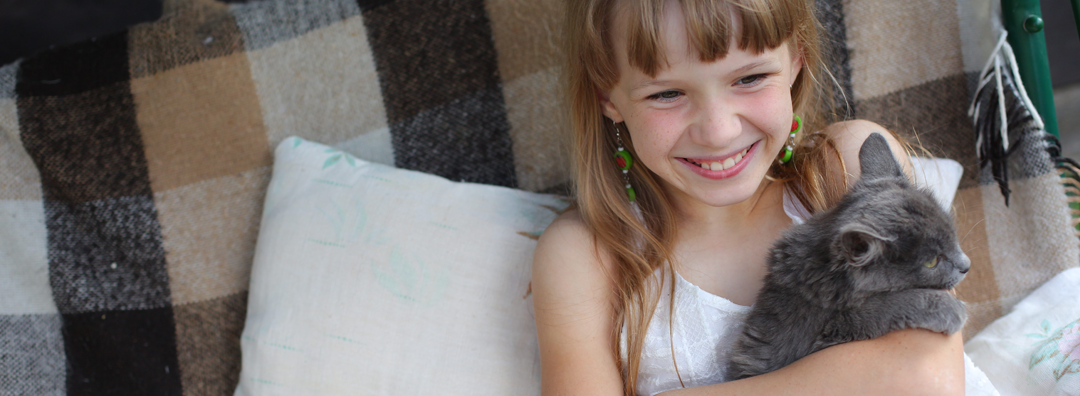
Giving Medication to Pets
Providing medication for your pet may be done for two reasons: as a preventative step (heartworm medication) or to treat disease (anything from an infection to major illness, such as cardiac disease). Giving the medication as directed and making sure the pet takes it are extremely important. Unfortunately, medication doesn’t work unless the pet swallows it.
Giving Pills and Tablets
The most effective way to give a pill is to put it into the mouth and make sure it is swallowed. Some pets, especially cats, dislike having their mouths opened or objects placed in them. With practice, giving pills takes place in only a few seconds and it is over before the pet can put up a fuss.
Place one hand over the pet’s head so that the index finger is on one side of the mouth and the thumb is on the other side. Tilt the nose upward. Hold the pill in the other hand between the thumb and forefinger. Using the middle finger, push down on the teeth of the lower jaw while applying slight pressure to the corners of the mouth with the restraining hand.
Drop the pill as far back into the mouth as possible. If plausible, give it a poke onto the back of the tongue with the index finger. Close the pet’s mouth quickly and stroke the throat to encourage swallowing. Often a quick short breath of air onto the nose of the pet will startle a pet into swallowing quickly.
An alternative — and less invasive — method of giving pills is to put them in food. A “meatball” of canned food, peanut butter, cheese or regular butter will all work — if you have a pet that will gobble up the treat quickly. If your dog or cat likes to take his time licking away at the food gift, the medication may remain on the floor as a leftover. It may also be spit out as soon as your pet can taste it.
Precautions: Some medications may not be broken into pieces because they have a protective coating. This coating dissolves at the appropriate rate for absorption of the medication into the body. Breaking the pill into pieces may alter the absorption. Many pills are made to rapidly dissolve and will become a mushy pile of medication once placed in the mouth or in food.
Giving Liquids
Administering liquids is generally easier than giving pills. Most liquid medications come with a dropper for measuring the dose and are commonly used for cats and small dogs.
Hold the pet’s head in the same manner as described above but do not open the mouth. Slide the dropper into the cheek pocket and squirt the medicine between the teeth. It runs between the teeth and to the back of the mouth to be swallowed. Keep the head tilted (but not too high) until the pet swallows. Without swallowing, most of the medication will be spit out when the head is released.
Precautions: Holding the mouth open and squirting the liquid into the back of it may result in gagging. If the sudden squirt of liquid startles the pet, some of the medication may be inhaled (aspirated) into the lungs. Holding the head and giving medication between the teeth will prevent this.
Other Considerations
Some pets, particularly cats, will salivate and drool excessively when given medication. Medications may have a bitter taste, which induces the salivation. Cats must often be restrained by a second person to ensure that medication is given in a quick and efficient manner. Wrapping the cat’s body in a towel helps keep nails from doing damage.
Many pets will learn to recognize the medication bottle and disappear at the sight of it. If giving pills totally eludes the pet owner, talk to the veterinarian to see if the medication comes in a liquid form.
Most animals will tolerate being given medication reasonably well. If a treat follows it, they may even look forward to receiving the pill! Although administering medication is awkward at first, anyone can become proficient at it with practice.
This article is provided as a general overview of the topic. Always consult your veterinarian for specific information related to diseases or medical care for pets.
1424 Maxim-Southard Road • Howell, NJ 07731 Open 7 days by appointment

© Highland Kennel | designed with love by Katie | Embodyart ![]()
© Highland Kennel designed with love by Katie | Embodyart ![]()


